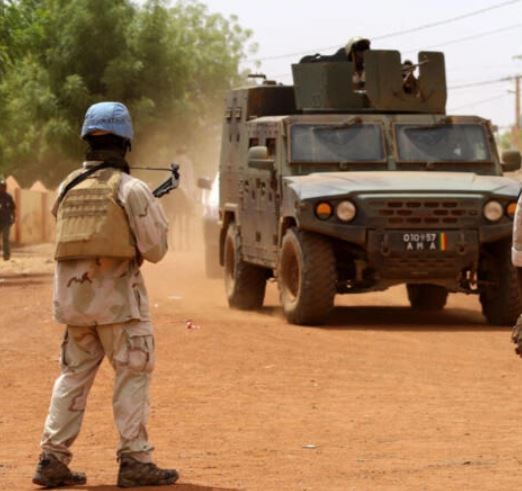Intensified Conflict in Northern Mali
The conflict in Mali has reached new heights as Tuareg rebels, operating under the Permanent Strategic Framework for Peace, Security, and Development (CSP-PSD), have reported substantial casualties among both Malian soldiers and Wagner mercenaries. Over the past two days, fierce fighting near the Algerian border has resulted in significant losses on both sides. The CSP-PSD claims responsibility for the destruction of several military assets, including armoured vehicles, trucks, and tankers, during the intense clashes that took place in the border town of Tinzaouaten.
The rebels have further reported damage to a helicopter, which subsequently crashed in Kidal, a town located hundreds of kilometres away from the initial confrontation. This claim, however, contrasts with the Malian army’s statements. According to the military, two soldiers were killed and ten injured in the recent skirmishes. Additionally, one of their helicopters, involved in a routine mission, crashed in Kidal, but fortunately, no fatalities were reported.
Casualties Among Wagner Mercenaries
Russian military sources and bloggers have corroborated reports of significant casualties among Wagner mercenaries. Prominent Russian military blogger Semyon Pegov, known by his alias War Gonzo, reported that at least 20 Wagner personnel were killed in an ambush while traveling in a convoy with government troops. The Baza Telegram news channel, with links to Russian security structures, has also confirmed these claims, asserting that Wagner fighters have been present in Mali since at least 2021.
The Wagner Group, a private military company that gained notoriety for its role in Russia’s Ukraine conflict, has been pivotal in several violent engagements. However, its operations in Mali have been shrouded in controversy and uncertainty, particularly following the death of its leader, Yevgeny Prigozhin, in a plane crash in August, and a subsequent brief mutiny against the Russian defense establishment.
Historical Context and Regional Implications
The Tuareg rebels, an ethnic group indigenous to the Sahara region, have long harbored grievances against the Malian government, which they accuse of marginalization. Their insurgency, which began in 2012, was initially aimed at achieving greater autonomy but was later complicated by the involvement of Islamist extremist groups. Despite a peace agreement signed in 2015, the rebels withdrew from negotiations in late 2022, leading to the current escalation.
The Malian government, which has been under military rule following coups in 2020 and 2021, insists that the Russian presence in Mali consists of trainers rather than mercenaries. This stance highlights the complexity of the conflict, involving international mercenaries and local insurgents, and underscores the broader geopolitical implications of the situation.
Summary
The recent clashes in Mali’s northern region have resulted in heavy casualties, with significant losses reported among both Malian soldiers and Wagner mercenaries. The Tuareg rebels have claimed responsibility for these developments, asserting their dominance in the conflict. The involvement of Wagner Group mercenaries, alongside local insurgents, adds a complex layer to the ongoing struggle in Mali.
Key Learning Points
| Point | Description |
|---|---|
| Rebel Claims of Casualties | Tuareg rebels report significant losses among soldiers and Wagner mercenaries. |
| Wagner Mercenaries’ Involvement | Reports confirm Wagner mercenaries suffered heavy casualties. |
| Historical Context of Tuareg Rebellion | The Tuareg rebellion, marked by grievances and previous peace agreements, complicates the conflict. |
| Malian Government’s Position | The government maintains that Russian forces in Mali are not mercenaries but trainers. |
Soumya Smruti Sahoo is a seasoned journalist with extensive experience in both international and Indian news writing. With a sharp analytical mind and a dedication to uncovering the truth, Soumya has built a reputation for delivering in-depth, well-researched articles that provide readers with a clear understanding of complex global and domestic issues. Her work reflects a deep commitment to journalistic integrity, making her a trusted source for accurate and insightful news coverage.



